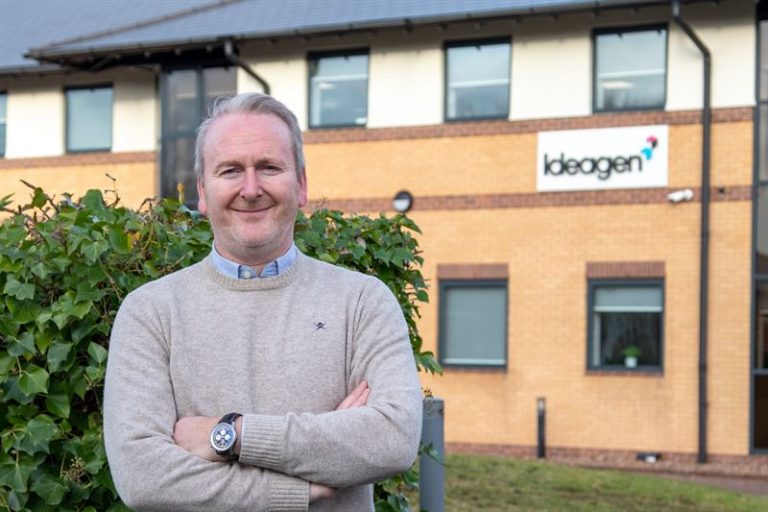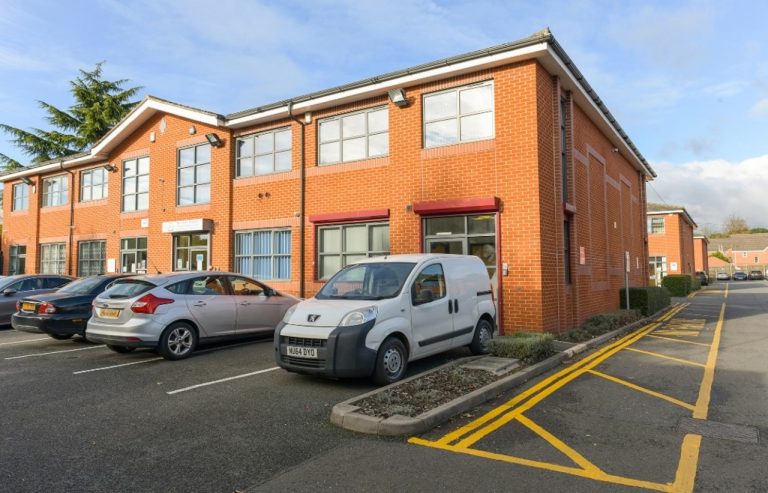- Delivering support services to the digital sector, particularly in transformative/emerging technologies. These services should address key challenges faced by a wide range of companies from seed stage to series A/B, their first or second round of financing.
- Developing the growth of regional support networks for tech start ups and scale ups. Activities should deliver concrete improvements against three or more areas identified in DCMS Regional Ecosystems Report: Investment, Skills, Innovation, Infrastructure and Business Growth/GVA. Interventions should be tailored to local needs and tech specialisms, and developed in partnership with local bodies.
- Ensure founders and firms can access digital entrepreneurship and investment readiness training, with tailored advice to help develop their skills to start and grow a tech business. Clearly signpost start-ups and scale-ups to the digital skills initiatives in private and the public sector (DCMS’ local digital skills partnerships) and share information on the types of roles available in tech companies, the skills required to access these roles, and direction to low/no cost skills provision to acquire those skills.
- Promoting and raising awareness of the strength and competitiveness of the UK tech sector with the aim of boosting investor confidence and inspiring the next generation of tech workers and entrepreneurs.
New Digital Growth Grant worth over £12million
60,000 packs of essential medicines donated to Ukraine by Leicestershire pharmaceuticals business
Ideagen raises more than £4,200 for Red Cross humanitarian effort in Ukraine
New deals show huge demand for East Midlands industrial space
P&O, PR & HR – what an utter ship-show! By Greg Simpson, founder of Press for Attention PR
Work with us to fix “utter injustice” of poor disability employment, small businesses urge Government
- Act to close the Disability Entrepreneurship Gap, including by committing to a target for 100,000 new disabled entrepreneurs by 2025, and 250,000 more by 2030.
- Redress disadvantage at the point of recruitment, including through a new disability Kickstart Scheme to make the most of pandemic-era policy innovation and give disabled people who are long-term unemployed their first proper chance in the workplace.
- Increase retention following sickness absence, including through a full Statutory Sick Pay rebate which prompts phased return to work for people who are off sick and by allowing a wider range of health professionals such as physios and mental health nurses to complete sign-off of Fit Notes.
- Promote progression in work for disabled people, including by allowing all disabled employees to ‘passport’ their portable Access to Work support to a new employer if they secure a new job.
- Help make workplaces better for disabled employees, including through new Line Management Bootcamps so front-line managers are better able to support disabled staff and deliver flexible working.
- Smooth transition from education to employment, including through joining up careers guidance and disability support, making sure disabled children access work experience and rolling out Access to Work passports for all young disabled people.
- Make treatment easier to manage alongside work, including by introducing stricter waiting time targets and service standards in the NHS for musculoskeletal problems and mental health treatment; and reviewing NICE clinical guidance to ensure better co-ordination between the health system and employment support.
- Improve JobCentre Plus’ offer to disabled people, including making Universal Credit more responsive to fluctuating health conditions and launching a revitalised version of the New Enterprise Allowance to help disabled jobseekers start their own businesses.
- Increase availability of Occupational Health support, including by making it easier for large firms to make Employee Assistance Programmes available to suppliers and delivering the findings from its testing and evaluation of the OH subsidy for SMEs and the self-employed within the next six months.
- Make disability employment central to cross-Government decision making including by establishing disability employment as a cross-departmental outcome metric in the Treasury’s Priority Outcomes targets and increasing the level of internal scrutiny of Equality Impact Assessments.
Chart-topping band Marseille join Derby businesses as fundraising target for Ukraine event at Bustler Market is smashed
A family-friendly charity event organised by a group of small businesses in Derby has raised more than double the initial fundraising target.
Chart-topping band Marseille, from Derby, entertained crowds at Bustler Market while businesses including personalised gift company Colleague Box, cosmetics brand Divine Box and artist Carla Dee – who painted one of the giant Rams that formed part of the Derby Rams Trail last summer – hosted pop-up shops.
The initial target for the event, held to raise funds for the DEC – Ukraine Humanitarian Appeal, was £1k but organisers are expecting to break the £2k mark.
Adam Bamford, of Colleague Box, said: “It is just fantastic to see how the city has come together to support this event, which we’re proud to support.
“Derby has a big heart and we’ve received so many kind donations for the raffle, including a signed Derby County shirt from Derby County Community Trust, tickets to Chatsworth House and bottles of bubbly.
“Derby player Festy Ebosele donated a pair of his boots, which he signed, and they were won by a young Rams fan who was over the moon to have won them. From schools doing bake sales to village halls becoming drop-off centres for donations, the generosity of the people of Derby never fails to amaze me.
“As a parent myself, I find it heartbreaking that families are being separated and having to flee their country. I couldn’t stand by and do nothing; Colleague Box donated 25% of our profits made last month to assist the brave people of Ukraine but organising a fundraising event with the incredible ladies who we recently worked with on our International Women’s Day gift box, seemed such a good idea to raise more money.”
Marseille, who have supported band The Sherlocks on tour, said that they were proud to be doing their bit for their home city.
“The incredible people of Derby have been so supportive of our journey so far and we are looking forward to taking part in this community fundraising event for the people of Ukraine,” said Will Brown, of Marseille.
Meanwhile, swimmers at Derby’s 4Strokes Academy have been swimming the length of the Ukraine during their lessons – 347 miles in total – to raise funds for people in war-torn Ukraine.
The club have set up a JustGiving page which has raised almost £10,000.
Co-founder Hayley Mitchell said: “Swimming is a life-skill and we have both young swimmers and adult swimmers at our school.
“It’s been a huge task; we’ve swam more than 38,000 lengths of our pool in Derby and, regardless of whether the children can swim with or without aids, they have been given the task of swimming as many lengths as they can so that we can collectively reach our target.
“We also held a 12-hour sponsored swim to boost the total further and invited parents, friends and families of our children to play their part. It’s been a real team effort and we’re over the moon to have raised so much money.”
Next size up for growing fashion business
Office unit sold at Nottingham business park
Next stage of project to save last major bellfoundry in Britain underway as contractors invited to tender
The Saving the Last Major Bellfoundry in Britain Project is entering its next stage as it invites main contractors to tender for a programme of capital works to protect and enhance Loughborough Bellfoundry’s Grade II* Listed Buildings and museum, funded by a number of generous donors and the National Lottery Heritage Fund.
The Loughborough Bellfoundry – which is in the centre of the Leicestershire town – is also known as John Taylor’s Bellfoundry, and is the last major bellfoundry in the UK and Commonwealth.
More than 25,000 bells, which can be heard in more than 100 countries, have been cast there since the present bellfoundry was built in 1859, from London’s St Paul’s Cathedral to Washington National Cathedral in the US capital, and from the National Carillon in Canberra, Australia to Cape Town City Hall in South Africa.
In 2016, the Loughborough Bellfoundry Trust was set up to begin the project of restoring the bellfoundry’s buildings, redeveloping the site’s museum and protecting the bellfoundry and the ancient craft of bell making for generations to come.
Plans for the comprehensive restoration of the Victorian site have been drawn up by a team lead by Caroe Architecture Limited and the Loughborough Bellfoundry Trust is now in a position to invite tenders from main contractors to deliver the project.
Works are expected to begin later this year and complete towards the end of 2023. Main contractors are invited to submit their proposals by the deadline of 16th May 2022.
The programme of works will include reconfiguration of the buildings’ archive room, office spaces and workshop facilities, as well as the creation of a new entrance into the historic site.
The museum will be improved and enhanced by increasing its footprint to incorporate additional exhibition space and room for an administration office.
Chrissie Van Mierlo, museum director at the Loughborough Bellfoundry Trust, said: “We are incredibly pleased and excited to have issued our invitation to tender on this project. The works are going to preserve and protect these historic and important buildings for years to come and provide a wonderful place for people to visit and learn about the highly specialised craftsmanship that the process of bellfounding entails.
“Our vision is for Loughborough Bellfoundry to become the global centre for the art of bell making and learning. We have been very fortunate to have benefitted from funding over the years to address the most urgent repair and conservation works required, and we’re thrilled to be in a position to enter the next stage of this project to secure the legacy of the Bellfoundry’s bells for future generations.”












